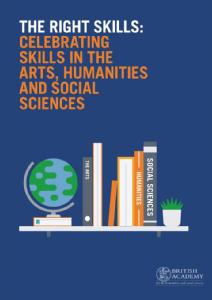IER News & blogs
Exploring collaborative research on graduates’ transitions into the labour market
 In July 2018, Dr Giulio Pedrini and Dr Luca Cattani from the University of Bologna will visit the IER for a month, working with Dr Daria Luchinskaya (IER) and Dr Charoula Tzanakou (PAIS) to develop a collaborative programme of research on graduate employment between the University of Warwick and the University of Bologna.
In July 2018, Dr Giulio Pedrini and Dr Luca Cattani from the University of Bologna will visit the IER for a month, working with Dr Daria Luchinskaya (IER) and Dr Charoula Tzanakou (PAIS) to develop a collaborative programme of research on graduate employment between the University of Warwick and the University of Bologna.
Degrees of Advantage: A longer-term investigation of the careers of UK graduates
 We are delighted to announce the new stage of the Futuretrack study, which will catch up with the Futuretrack cohort of students who applied to university in 2005/2006, most of whom graduated in 2009/10, eight to nine years after their graduation.
We are delighted to announce the new stage of the Futuretrack study, which will catch up with the Futuretrack cohort of students who applied to university in 2005/2006, most of whom graduated in 2009/10, eight to nine years after their graduation.
This is the fifth stage of the Futuretrack longitudinal survey, and is funded by the Nuffield Foundation. For more information read here.
IER research informs the new British Academy report on the skills of graduates of Arts, Humanities and Social Sciences (AHSS)

The British Academy has launched its new report on the skills of AHSS graduates.
IER was commissioned by the British Academy to conduct mixed-methods research to identify AHSS graduates’ and employers’ perceptions of their skills, the benefits of AHSS graduates to the economy and to society and the need for any further skills development. The research, involving a comprehensive review of existing literature, analysis of 3 different quantitative data sources, focus groups with 22 graduates and postgraduates, and interviews with 6 employers, found that graduates with more creative approaches to work will be highly valued in the future and, if AHSS graduates can combine their creativity with good technical skills, they will be highly sought after. Those with narrow skill sets are more likely to struggle in the labour market, except in niche areas where there may be a shortage of particular skills. The research was led by Dr Clare Lyonette, with Dr Wil Hunt and Beate Baldauf, and the IER report has been published on the British Academy website.
New Futuretrack Reports: Ten Years On - and the impact of the pandemic on graduate careers
 The publication of the Futuretrack Stage 5 study conducted in 2019, led by Professors Peter Elias and Kate Purcell and funded by the Nuffield Foundation, showed ‘how the majority of graduates had by then achieved reasonable job security, with many balancing work and parenting or other caring roles when the pandemic hit’ (see press release). In 2020, the research team went back to respondents to investigate how they had been affected by the Covid restrictions and economic impact and conducted Futuretrack Stage 6.
The publication of the Futuretrack Stage 5 study conducted in 2019, led by Professors Peter Elias and Kate Purcell and funded by the Nuffield Foundation, showed ‘how the majority of graduates had by then achieved reasonable job security, with many balancing work and parenting or other caring roles when the pandemic hit’ (see press release). In 2020, the research team went back to respondents to investigate how they had been affected by the Covid restrictions and economic impact and conducted Futuretrack Stage 6.
For full details of the research see:
- the report on the Covid-19 impact: Covid 19 and graduate careers
- a slightly revised version of the report published in March 2021: Ten Years On – the Futuretrack Graduates
- a short report that summarises and draws the implications of both the above What a difference a year makes: the impact od Covid 19 on graduate careers
Upcoming seminar: Academic mobility and employability
 Employability gain is often connected to international experiences, however, empirical findings are sparse. The Academic Mobilities and Immobilities Network (AMIN) and IER are organising a research seminar to explore research on academic mobility on 23 May. There will be presentations from Dr Toni Wright (Newham College), Eluned Jones (University of Birmingham) and Gaby Atfield (IER) focusing on: do students enrolled in UK Higher Education Institutions gain international experiences by studying or working in a different country, or by taking part in international events on the UK campus?; and do international students enhance their employability by studying in a UK higher education institution? To register and find out more here.
Employability gain is often connected to international experiences, however, empirical findings are sparse. The Academic Mobilities and Immobilities Network (AMIN) and IER are organising a research seminar to explore research on academic mobility on 23 May. There will be presentations from Dr Toni Wright (Newham College), Eluned Jones (University of Birmingham) and Gaby Atfield (IER) focusing on: do students enrolled in UK Higher Education Institutions gain international experiences by studying or working in a different country, or by taking part in international events on the UK campus?; and do international students enhance their employability by studying in a UK higher education institution? To register and find out more here.
